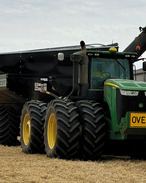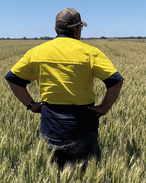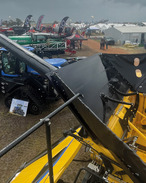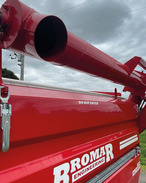Announced this week, the CSIRO's Towards Net Zero Mission is a large-scale scientific and collaborative research initiative bringing together research, industry, government, and communities.
The initiative aims to help the Australian steel and agricultural industries halve their emissions by 2035.
Announcing the Mission, CSIRO chief executive, Dr Larry Marshall, said transitioning these industries is not just about using new technology to solve a global problem, but deliberately turning that problem into new economic growth by building national capability and reimagining how we live and work.
"Our hard to abate industries like resources and agriculture are critical Australian advantages and are deeply embedded into the fabric of our regions - regions that our country is built on," Dr Marshall said.
"So, our Mission must be co-developed not just with those in the hard to abate industries, but also in partnership with their communities to understand the impacts and opportunities arising from new science-enabled technologies and ways of doing business.
"The transformation of these hard to abate industries and regions is critical to our nation's future prosperity, and Australian science will ensure no one gets left behind in this enormous transition. Every Australian is part of the journey to net zero."
CSIRO says the Towards Net Zero Mission will help Australia respond to the multiple challenges facing regions and it aims to:
• Support a profitable and sustainable agriculture industry in a low emissions world;
• Identify what is required to develop new low emissions steel and iron ore processes;
• Identify what is required to develop sustainable aviation fuel to support the aviation sector;
• Help regions navigate the transition to net zero through new collaborations, analysis, and support; and
• Expand Australia's carbon offset capacity by using and scaling negative emission technologies such as carbon sequestration.
The research brings together the CSIRO with government partners and collaborators Climate Change Authority; Department of Climate Change, Energy; Environment and Water; Department of Industry, Science and Resources; Queensland Department of Agriculture and Fisheries; along with industry partners and collaborators BHP, Boeing, Climate Leaders Coalition (CLC), Climate-Kic, ClimateWorks, Incitec Pivot, KPMG Australia, Meat & Livestock Australia, Qantas, and a number of universities and research organisations.
























